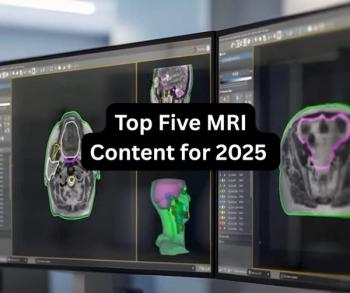
- Diagnostic Imaging Vol 31 No 9
- Volume 31
- Issue 9
Cardiac CT certification hinges on experience
Results from the first Cardiac CT Board Examination suggest that clinical experience is what counts the most toward making the grade.
Results from the first Cardiac CT Board Examination suggest that clinical experience is what counts the most toward making the grade.
Dr. Allen J. Taylor from the Washington Hospital Center in Washington, DC, and colleagues at another six major U.S. research institutions found a high correlation between results of the Board Exam, which took place in September 2008, and criteria for certification. Exam results showed radiologists and cardiologists who met requirements for CCT competence certification did equally well on the test. Those who did well included physicians with at least one month of CCT reading experience (100% pass), fellows with formal CT training (96.3% pass), and early adopters of the technology or “self-trained” candidates (93.2% pass). The investigators released findings at the 2009 Society of Cardiovascular Computed Tomography meeting in Orlando, FL.
Articles in this issue
over 16 years ago
ERs find assault victim SOP pelvic x-rays unnecessaryover 16 years ago
Researchers clash over AAA screening's worthover 16 years ago
fMRI hints 'will' and 'grace' are not equally honestover 16 years ago
MRI software predicts Alzheimer's diseaseover 16 years ago
Partial reform invites docs to game the systemover 16 years ago
Mammography patients feel pinch of recessionover 16 years ago
Will patient pics improve or harm interpretation quality?over 16 years ago
Diffusion tensor imaging charts path to schizophreniaover 16 years ago
RSNA's integration effort tackles radiation exposureover 16 years ago
Radiologist incomes rise despite slower job growthNewsletter
Stay at the forefront of radiology with the Diagnostic Imaging newsletter, delivering the latest news, clinical insights, and imaging advancements for today’s radiologists.












